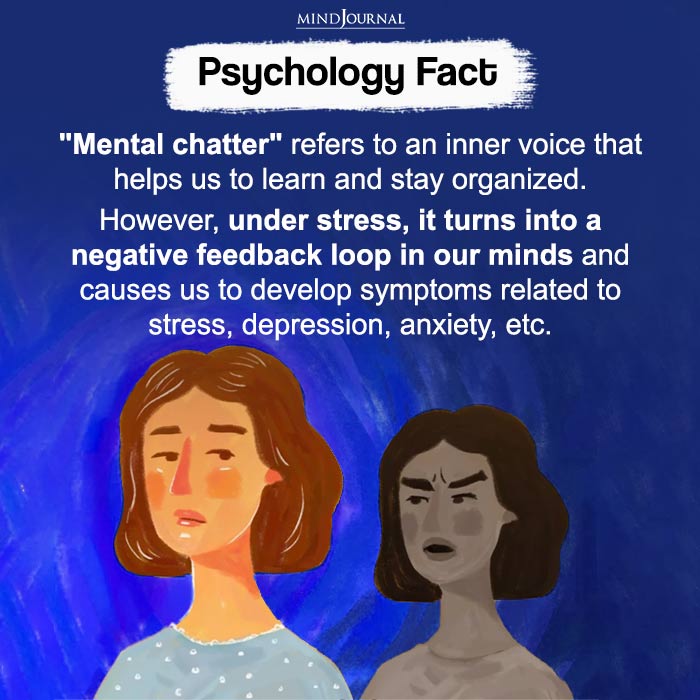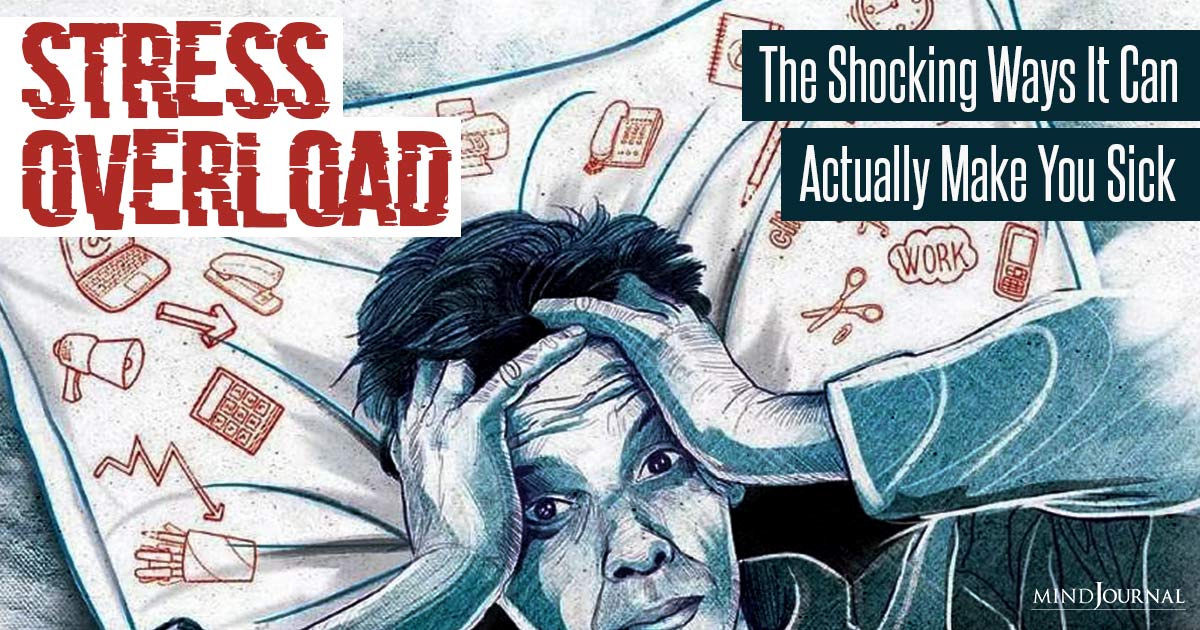Amidst the fast-paced nature of contemporary living, stress has evolved into an undesirable constant presence. But can too much stress make you sick? Let us explore the surprising connection between stress and illness and find out what we can do about it.
Can too much stress make you sick?
Yes! Excessive stress can indeed have a negative impact on your health. Chronic stress can compromise the immune system, making you more vulnerable to various illnesses. It can also lead to various physical and mental health issues such as cardiovascular problems, digestive disorders, anxiety, and depression.
The body’s stress response, if chronic, can disrupt normal bodily functions, leading to imbalances and potential illness. Hence, learning to manage stress and seeking support is crucial for maintaining overall well-being.
Related: Stress Is Contagious: Understanding The Ripple Effect Of Stress
Understanding the link between stress and illness
In today’s fast-paced world, stress has become an unavoidable part of our lives. Whether it’s the pressure at work, relationship challenges, financial burdens, or simply the demands of daily life, stress seems to lurk around every corner.
Stress is a natural response of our body to perceived threats or challenges. When faced with a stressful situation, our body releases stress hormones, such as cortisol and adrenaline, which trigger a series of physiological changes known as the “fight-or-flight” response.
While this response is crucial for our survival in short bursts, long-term or chronic stress can have detrimental effects on our health.
Common illnesses associated with stress
Can too much stress make you sick? Yes! Here are the most common illnesses that can be experienced due to chronic stress –
1. Headaches and migraines
Stress-related tension can trigger headaches or migraines in susceptible individuals. The constant muscle tension in the neck, shoulders, and scalp can lead to debilitating headaches, significantly impacting the quality of life.
2. Respiratory issues
Stress has the potential to aggravate respiratory conditions like asthma, allergies, and chronic obstructive pulmonary disease (COPD). The body’s stress response can cause inflammation and constriction of the airways, making breathing more difficult for those already struggling with respiratory issues.
3. Skin disorders
Stress can manifest on our skin in various ways. It can exacerbate existing skin conditions like eczema, psoriasis, and acne. Stress hormones can also increase oil production, leading to breakouts and blemishes.
Furthermore, stress-induced scratching or picking can result in skin damage and slow down the healing process.
4. Weakened libido and sexual dysfunction
Chronic stress can dampen sexual desire and disrupt sexual function. Stress affects the production of sex hormones, such as testosterone and estrogen, and can lead to issues like erectile dysfunction, loss of libido, and difficulties achieving orgasm.
Related: 10 Secret Areas Where You Store Stress In Your Body

How can stress make you sick?
Now that we have learned the answer to can too much stress make you sick, let us see how can stress make you sick. Here’s how excessive stress can impact our physical and mental well-being –
1. Weakening of the immune system
Excessive stress can weaken our immune system, leaving us more susceptible to infections and illnesses. Stress hormones suppress the activity of immune cells, making it harder for our body to fight off viruses, bacteria, and other pathogens.
As a result, individuals experiencing chronic stress may find themselves falling ill more frequently.
2. Cardiovascular issues
Prolonged stress can take a toll on our cardiovascular system. Stress hormones cause an increase in heart rate and blood pressure, which, over time, can lead to the development of hypertension, heart disease, and even heart attacks.
Furthermore, chronic stress can contribute to the accumulation of plaque in the arteries, increasing the risk of strokes and other cardiovascular complications.
3. Digestive disorders
Stress has a profound impact on our digestive system. It can disrupt the normal functioning of the gastrointestinal tract, leading to issues such as stomachaches, indigestion, acid reflux, and irritable bowel syndrome (IBS).
Moreover, chronic stress can worsen existing conditions like ulcers and inflammatory bowel disease.
4. Mental health disorders
The link between stress & mental health is rather complex. While stress does not directly cause mental illnesses, it can act as a trigger or exacerbate existing conditions.
Chronic stress is strongly associated with anxiety disorders, depression, and even post-traumatic stress disorder (PTSD). The constant strain on our mental well-being can affect our ability to cope with daily challenges, leading to a decline in overall mental health.
5. Sleep disorders
Stress and sleep are deeply intertwined. Excessive stress can disrupt our sleep patterns, leading to insomnia or poor-quality sleep. Lack of adequate rest can further exacerbate stress levels, creating a vicious cycle.
Sleep deprivation has been linked to a wide range of health problems, including weakened immune function, cognitive impairment, and mood disorders.
Related: Beat Stress With This Simple 4-Step Exercise, Practiced By U.S. Navy Seals
How to cope with stress
Knowing “can too much stress make you sick?” and “how can stress make you sick?” is not enough. We must also learn how to deal with chronic stress and improve our mental and physical well-being.

Here are a few helpful strategies to deal with stress –
1. Stress management techniques
Learning effective stress management techniques can significantly reduce the impact of stress on our health. Certain relaxation techniques and practices can help alleviate stress and promote overall well-being, such as –
- Mindfulness meditation
- Deep breathing exercises
- Regular physical activity
- Engaging in hobbies
2. Social support
Building a strong support network of friends, family, or support groups can provide emotional comfort during stressful times. Sharing your feelings and seeking support from loved ones can help alleviate stress and prevent it from taking a toll on your health.
3. Healthy lifestyle choices
Maintaining a healthy lifestyle can act as a buffer against stress-related illnesses. Lifestyle changes and choices can fortify your body and mind against the negative effects of stress. This can include –
- Eating a balanced diet
- Getting regular exercise
- Prioritizing sleep
- Avoiding excessive alcohol or drug use
Takeaway

The answer to the question – Can too much stress make you sick?- is a resounding yes. Excessive and chronic stress can indeed make us susceptible to a range of illnesses and health problems.
From weakening our immune system to contributing to cardiovascular issues, digestive disorders, mental health disorders, sleep disorders, and more, stress takes a toll on our overall well-being. It is crucial to recognize the impact of stress on our health and take proactive steps to manage it effectively.
By adopting stress management techniques, seeking social support, and making healthy lifestyle choices, we can mitigate the negative effects of stress and promote our physical and mental well-being.
Remember, taking care of ourselves is not a luxury but a necessity, and prioritizing stress reduction is an essential part of that self-care journey.
So, the next time you find yourself overwhelmed by stress, take a moment to pause, breathe, and remind yourself that your health and well-being deserve your attention and care.
Related: Food For Mental Health: 10 Foods That Can Help Boost Your Mood And Reduce Stress
Frequently Asked Questions (FAQs):
What are the symptoms of being sick from stress?
Symptoms may include headaches, fatigue, digestive issues, insomnia, changes in appetite, increased heart rate, and heightened anxiety.
What are 5 emotional signs of stress?
Irritability, mood swings, excessive worry, feeling overwhelmed, and difficulty concentrating are common emotional signs of stress.
What happens when you have too much stress?
Excessive stress can lead to physical health problems (e.g., weakened immune system), mental health issues (e.g., anxiety, depression), and overall reduced well-being.










Leave a Reply